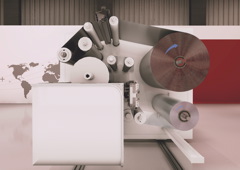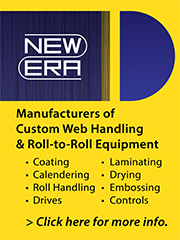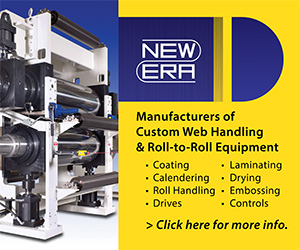Bobst Offers Technology for Metal Adhesion
- Published: March 02, 2018
MEX, SWITZERLAND | Bobst announces Alubond, said to eliminate the need for chemically treated films. According to the company, traditional metallization, even with plasma treatment, can result in poor metal-to-polymer substrate bonding, this produces de-lamination which leads to packaging failure and results in product rejects and loss of reputation. Part of the problem, says Bobst, is low surface energy on the metal side which also contributes to poor lamination bonding. There is increasing demand in the industry for higher levels of metal adhesion on metallized film due to the need for more complex packaging structures which requires a lamination peel strength suitable for functional needs. 
Reportedly, high bonding strength is achieved on any substrate with the AluBond metallizing process, an advanced metal adhesion technology in which metal adhesion values can be achieved to 5N/15mm. The process is an in-line hybrid coating technology that promotes chemical anchoring (chelation) of the first aluminium particles, creating a metallizing seeding layer that provides superior bond strength properties.
Very high adhesion is said to be achieved when there are direct chemical bonds between the aluminium coating and the polymer surface. Increased chemical bonding by the creation of the seeding layer increases lamination bond strength and leads to high performance during lamination, extrusion, and coating processes, preventing failure of the packaging.
AluBond reportedly has been shown to greatly increase metal bond strength and metal adhesion on the most commonly used substrates (PET, BOPP, CPP, and PE) during aluminium vacuum metallization.
In addition the process has also been shown to significantly increase dyne level retention, which translates in improved ink wettability during printing and enhances structure stability during lamination. AluBond generates added value by extending surface energy stability on metallized films over a long period of time, company adds, and may eliminate the need for an additional surface treatment boost, i.e. corona refresh prior to converting.







